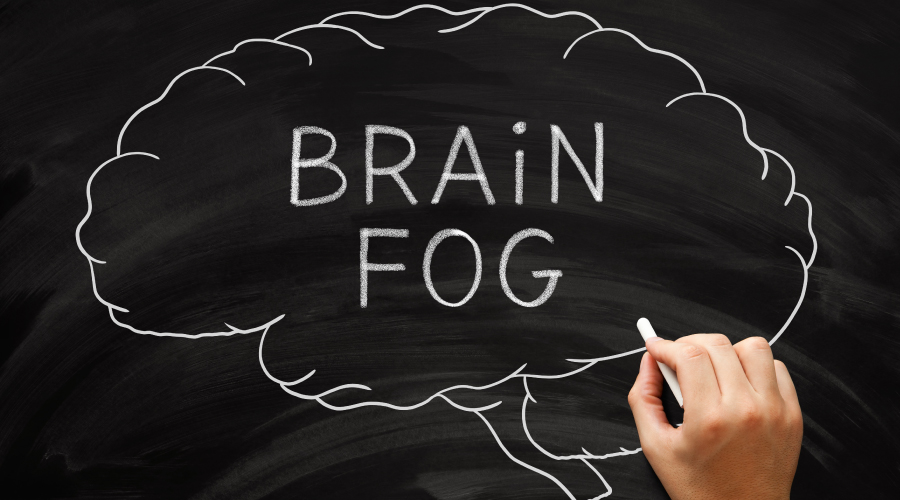

Making it challenging to do ordinary tasks, brain fog affects how one thinks, remembers things and concentrates. The affected person often loses the train of thought in the middle of a conversation. While brain fog is usually temporary, its duration can vary. Read on to know more about brain fog causes, its symptoms and how it can be managed.
What is Brain Fog?
Also known as mental fog, brain fog covers a range of symptoms that cause cognitive dysfunction, which further impacts a person’s ability to think, focus and remember. Clouding one’s mind, these symptoms make it difficult to perform routine tasks or hold a conversation.
This condition can happen as a symptom of an underlying condition, after an illness, or as a side effect of a medication. Notably, it is not the same as delirium or dementia. Also, it is commonly experienced by females going through menopause and people having cancer treatment.
Common Symptoms of Brain Fog
The symptoms of brain fog can slightly vary from person to person. But, the common ones are:
- Confusion
- Difficulty concentrating or focusing
- Difficulty thinking clearly
- Difficulty understanding new information
- Fatigue
- Forgetfulness
- Finding it hard to plan activities and solve problems
- Having trouble with multitasking
- Losing track of thoughts
- Mental exhaustion
- Not finding the right words
- Slow thought process and reaction time
- Trouble paying attention
Possible Causes of Brain Fog
The following are some of the common brain fog causes:
- Lack of sleep
- Autoimmune conditions, such as multiple sclerosis, lupus and fibromyalgia
- Diabetes and low blood sugar levels
- Mental health conditions like depression and anxiety
- Neurodivergent conditions including attention deficit hyperactivity disorder (ADHD) and autism spectrum disorder
- Hormonal changes during pregnancy or menopause
- Poor nutrition
- Stress
Besides, brain fog can develop after suffering a COVID-19 infection, chemotherapy treatment, and long hospital stays. Also, some studies have observed that the immune system could cause inflammation in the brain (neuroinflammation) that can make it difficult to process information.
How is Brain Fog Diagnosed?
While there is no brain fog test to diagnose the condition at present, doctors will inquire about the symptoms that are affecting one’s daily life. Also, they may order some blood tests along with a brain scan in order to find out the root cause of symptoms. These tests may reflect the possible brain fog causes, such as diabetes or anaemia, that can be treated.
Brain Fog Treatment
Brain fog treatment varies from cause to cause. If anaemia is what has caused this problem, then the doctor might prescribe iron tablets. Or, if it is caused as a side effect after taking a medicine, then the doctor may consider changing the medication. Besides, a healthcare provider may also address specific symptoms with antidepressants or nonsteroidal anti-inflammatory drugs (NSAIDs). Though every cause is not treatable, focus must be laid on improving symptoms in order to manage the condition.
In short, we can say there isn’t any specific brain fog treatment, but one can manage it by implementing certain lifestyle changes. Maintaining a healthy lifestyle can help a lot when it comes to improving brain fog symptoms. One must try to get plenty of sleep, exercise regularly, consume a healthy diet, keep hydrated, avoid smoking and limit alcohol. Also, doing yoga and meditation can help reduce stress. Further, one can indulge in solving puzzles, learning a new skill or doing something creative to keep the brain active. It is also a good idea to spend time with other people.
Yet, there is no shortcuts to clear brain fog instantly, but the following tips can help improve one’s memory:
- Fix a daily routine and follow it
- Do one thing at a time
- To focus, avoid distractions by finding a quiet place or turning off the phone
- Divide big tasks into smaller ones
- When facing difficulty concentrating, take a break and try again
- Choose other words denoting similar meanings when struggling to find the exact word
- Set phone reminders to complete tasks on time
- Put medicines in a dosing box and request a pharmacist for help
- Choose a place and always keep all the important objects there only
- Participate in psychotherapy like cognitive behavioural therapy
Conclusion
In a nutshell, brain fog describes problems with thinking and memory that can be caused owing to stress, menopause, poor sleep, and long COVID, amongst other reasons. While some symptoms can be treated using medications, it is suggested to adopt a healthy lifestyle and keep the brain active for better management of the condition.




